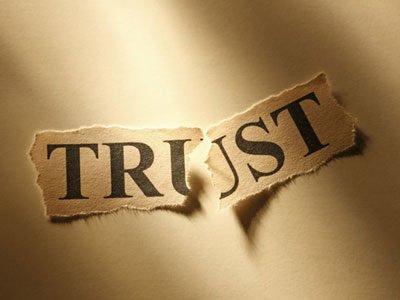When Is It Acceptable to Cheat?
Even if the don’t ask so directly, many clients come in for therapy wanting me to tell them what to do. They ask me to solve their problem for them. They want me to tell them what is right, or what is healthy.
I can’t.
It’s not even that I won’t do it. I can’t tell someone what is right or healthy because what I believe to be “right” or “healthy” might not be right or healthy for them. So, then what is the point of therapy? While I cannot provide absolute answers for many of my clients’ problems, I can help them figure out what will work for them in their lives. I work from the context of my clients’ lives and relationships. Since their lives and relationships can be very different than mine, what works for me very well may not work for them.
So, now that that’s out of the way, let’s go back to the question that prompted this article. To summarize:
I’m in a sexless marriage. Should I cheat on my partner if I know that they won’t find out and that I won’t get attached?
On the surface, it may seem that the question being asked is whether sex outside of a committed relationship is ever acceptable. There is no absolute answer for this question. While sex outside of the relationship may not be acceptable for you, there are plenty of couples for whom sex with multiple partners is not only acceptable, but it is actually an integral part of their relationship. For other couples, there may be an agreed upon arrangement in which one or both members are allowed to sleep with another person, or other people, as long as there is no previous or continued relationship.
I could continue to illustrate different arrangements that couples have in regards to their sexuality, but that isn’t really the point. The common thread in these relationships is that there is an agreement between the members of the couple about what is acceptable for their relationship. Since I work from the context of my clients’ relationship, if they agree that some form of sex outside the relationship is what they want, who am I to tell them that it’s not okay? As long as it is agreed upon, the arrangement isn’t causing them problems in their relationship, and they aren’t harming themselves or others, inserting my own personal beliefs as to what is “right” or “healthy” would be inappropriate and counterproductive.
This is not, however, what the original question is asking. The question is asking if it is okay to cheat. In my opinion, the answer to that question is always “no.” Cheating on your partner is never acceptable because it violates the most important pillar of any relationship: trust. Cheating implies that you are hiding your other relationship from your partner, and that they would not be accepting of that relationship. If this is true, then you are actively and willingly causing harm to your partner. This is never okay. Even if you are really good at hiding your infidelity, the hiding of a secret that big and potentially devastating to your partner makes it very difficult to be open and present with your partner. Relationships are based on feeling like you don’t have to hide any part of yourself from your partner, and that they aren’t hiding any part of themselves from you. When one or both partners begin to doubt this, they start to pull away emotionally to protect themselves. This is why secrets of this nature are toxic in relationships
So, should you cheat if your needs aren’t being met? I mean, what they don’t know won’t hurt them, right? My experience and training as a couples’ therapist has led me to emphatically disagree. It is my opinion that if you are unhappy with something in your relationship, you can either try to address that in the relationship, or you can decide that this is not the relationship for you and end it.
Either of those are acceptable options. Your needs in a relationship are your needs.
If they aren’t being met, and that isn’t working for you, then you have a choice to make. Cheating may seem like the easy road, but it hardly ever is. More often than not, it leads to devastating consequences that could have been avoided by making a slightly tougher choice in the first place.
References
Boyd, D. (2014). It’s complicated: The social lives of networked teens. Yale University Press.
Gupta, V. K., Arora, S., & Gupta, M. (2013). Computer-related illnesses and Facebook syndrome: what are they and how do we tackle them. Medicine Update, 23, 676-9.
Jelenchick, L.A., Eickhoff, J.C., & Moreno, M.A. (2013). “Facebook depression?” Social networking site use and depression in older adolescents. Journal of Adolescent Health, 52(1), 128-130.
Kuss, D. J., & Griffiths, M. D. (2011). Online social networking and addiction—a review of the psychological literature. International journal of environmental research and public health, 8(9), 3528-3552.
O’Keeffe, G. S., & Clarke-Pearson, K. (2011). The impact of social media on children, adolescents, and families. Pediatrics, 127(4), 800-804.
Young, K., Pistner, M., O’MARA, J. A. M. E. S., & Buchanan, J. (1999). Cyber disorders: the mental health concern for the new millennium. CyberPsychology & Behavior, 2(5), 475-479.

